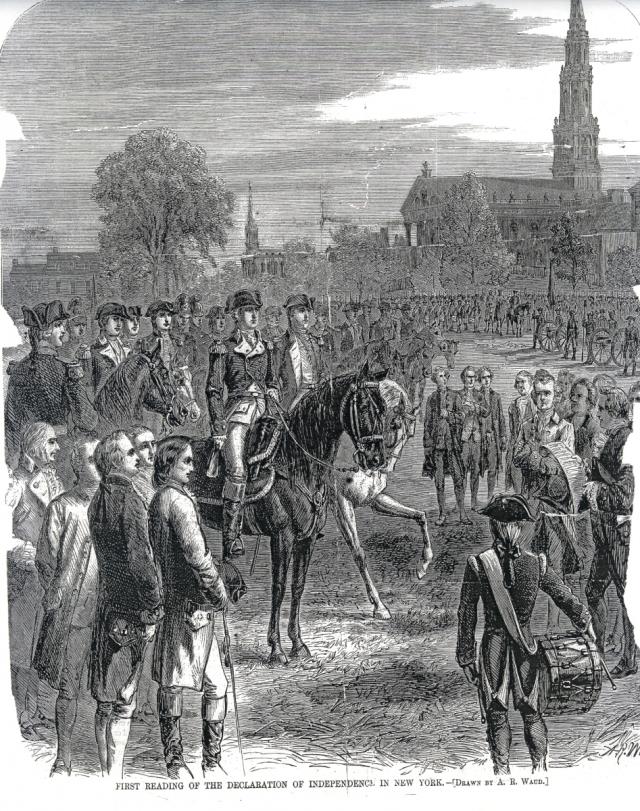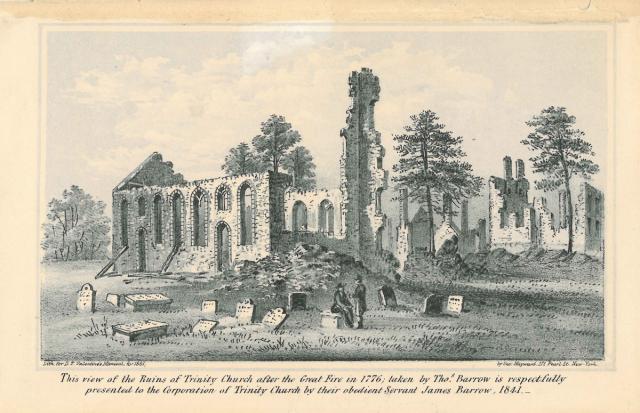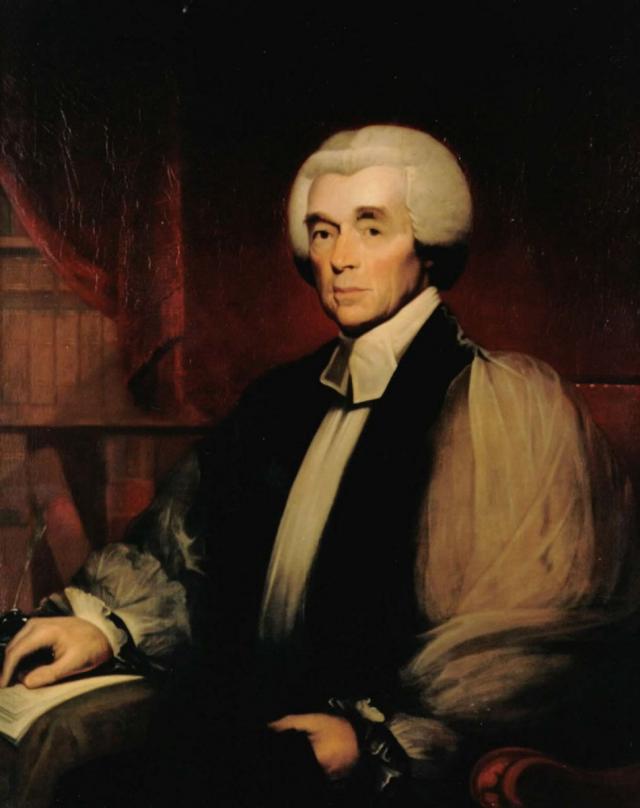Evacuation Day and Trinity's Rector
November 25 this year falls the day after Thanksgiving and is likely to be publicized primarily as “Black Friday,” purportedly the biggest shopping day of the year. Almost forgotten these days is a celebration that would have been a major holiday in New York City during much of the late 18th and early 19th century—Evacuation Day.
The first Evacuation Day was Tuesday November 25, 1783, the date when British troops ended their occupation of New York City. The British had held the city for seven, often bitter, years. Although there were no major battles following the victory of the colonists (with a lot of help from the French) at Yorktown in 1781, the peace treaty was not officially completed and signed until September 1783. So the withdrawal of the British troops and the triumphant return of General George Washington to New York truly signified the end of the Revolutionary War. For the colonists, the patriots, they had won a victory against the most powerful country in the world at the time. Evacuation Day was an occasion for celebrating, a day when innumerable “adult beverages” would be hoisted, along with assorted other forms of merrymaking. Events included the ringing of church bells, the staging of patriotic plays, military drills, parades, and public school closings. Evacuation Day was said to rival and, at least in New York City, surpass the Fourth of July as a holiday. On the one-hundredth anniversary of Evacuation Day, in 1883, an estimated twenty-thousand marchers participated in a four-hour long parade.
Trinity Church Wall Street’s 320 years of history includes the first Evacuation Day, but the occasion would have been more subdued. Trinity’s fourth Rector, the Rev. Charles Inglis, was regarded as a Loyalist, although he seems to have ministered to both sides during the war. As Loyalist refugees crowded New York City during the war, Inglis worked to relieve the suffering brought on by shortages of food and fuel. He kept the charity school open. The first Trinity Church building, burned to the ground in September 1776, was not rebuilt during the war, and British soldiers may have used the ruins as a summer theatre.
As the war came to a close in 1783, Inglis and several families of Trinity parishioners evacuated to England and eventually settled in Nova Scotia. His final sermon as Rector, preached on October 26, 1783, included this, "I have labored to prevent the shedding of blood; when I go from America, I do not leave behind me an individual, against whom I have the smallest degree of resentment or ill will."
Thirty days after that sermon came Evacuation Day, a once rollicking and boisterous New York City holiday now largely lost to public imagination.








